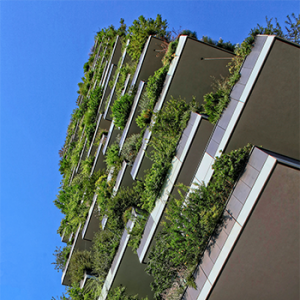Green Construction Fields for Environmentally-Minded Workers
Green construction is on the rise. Thanks to the growing importance of LEED certification, energy efficiency standards, the rise of renewable energy and changing social conventions about the impact of climate change, modern construction workers are more exposed to sustainable construction techniques than ever.
In fact, “greener” construction positions like energy auditors, climate-savvy construction managers and solar energy installation managers are projected to grow 6-10% between 2018 and 2028.
This desire to build a more sustainable world crosses industry lines, including those in the skilled trades. Those entering the field might wonder how they can marry eco-consciousness and their chosen career — and improve their prospects in the process. Here are seven green construction fields for environmentally-minded workers.
1. Solar Technology
Those seeking a green career in the construction trades often gravitate toward solar technology. Environmentally-minded workers can find work installing panels and helping homeowners and businesses become more sustainable. Talented individuals who understand the ins and outs of setting up full systems could launch lucrative careers capitalizing on the recent interest in renewable energy systems. Solar panels are becoming more affordable and accessible to homeowners than ever before, and rising utility costs are pushing some consumers to embrace renewable energy options to save money in the long run.
Solar photovoltaic installers are well-positioned to increase their growth in the years to come.
2. Air Quality Management
The importance of indoor air quality came to the forefront during the COVID-19 pandemic. Poor ventilation increases the risk of various illnesses. Harmful chemicals released by volatile organic compounds (VOCs) also bleed into the atmosphere, contributing to ozone depletion.
A career in air quality management has you in the field evaluating various structures and correcting hazardous issues. It’s smart to seek certification as an HVAC technician to troubleshoot heating and cooling systems.
You might work hand-in-hand with architects in designing new construction. You can advise on window and fan placement to increase the overall efficiency of a building’s ventilation.
3. Masonry Restoration
This might not seem as apparent, but retrofitting and repairing our existing buildings is one of the best ways to maintain our building stock while improving energy efficiency and performance.
What happens when a building’s facade –perhaps even its foundation –crumbles? In many cases, the answer might be to demolish the building and start from scratch. However, doing so wastes an inordinate amount of raw materials while posing environmental risks from chemicals spewed into the ground and atmosphere during demolition.
A career in masonry restoration helps minimize the need for such destruction. People in this career use specialty materials to repair deteriorating mortar joints and reinforce walls, restoring their structural integrity. Some techniques, such as face anchoring, can increase a structure’s load resistance and make it less likely to collapse.
4. Water Conservation
Water conservation and management is an essential part of building a greener world. Homeowners in drought-prone areas need assistance with water-efficient properties, while landscaping fields are studying how to manage storm water runoff as flooding increases in coastal areas.
Your green construction career in water conservation might lead you to seek your plumber’s license. You can recommend installing low-flow devices in residences and commercial buildings, reducing their water use.
You might also consult on larger projects that manage this precious resource from point A to B. For example, you could work on a dam-building or reconstruction project or evaluate the efficiency of existing canals for distributing water where the need is greatest.
5. Urban Planning
Cities don’t arise helter-skelter –at least, the most energy-efficient and eco-friendly ones don’t. Arranging infrastructure and services to serve the maximum number of people while minimizing the environmental impact requires careful planning.
This green construction field might be for you if you enjoy higher learning. You’ll typically need a master’s degree from an accredited institution to break into the industry. It’s also a good choice for those who prefer the office to the field.

6. Landscape Architecture
Those who live for the great outdoors and growing things might find landscape architecture their ideal green construction career. People in this field design and care for the grounds surrounding commercial and governmental buildings, greening their overall footprint.
For example, xeriscaping can reduce water use by 50-75%. It also decreases the need for power to run the various timers. Such individuals can suggest more subtle design changes, like replacing disease-prone plants with hardier varieties, which lowers the need for chemical pesticides and fertilizers that contaminate the soil.
7. Roofing
Can roofers help save the planet? Yes. The right materials and techniques can make homes and commercial buildings eco-friendlier and more sustainable.
For example, installing skylights allows property owners to take better advantage of passive solar heating and lighting. Replacing worn roofing tiles with new ones helps stop energy loss.
These engineers can go a step further by designing green roofs. Such layouts use the spots atop high-rises as community gardens for residents. They can also provide restaurants with a handy source of fresh, organic produce they don’t have to ship.
Green Construction Fields for Environmentally-Minded Workers
Today’s workforce craves careers that match their value. Many people want to do more to address climate change. Why not consider working in one of these green construction fields for environmentally-minded workers? Those who do can help the planet while putting more green in their pockets.
Interested in receiving more great construction news, research and content from NCCER? Click here to join our mailing list!

